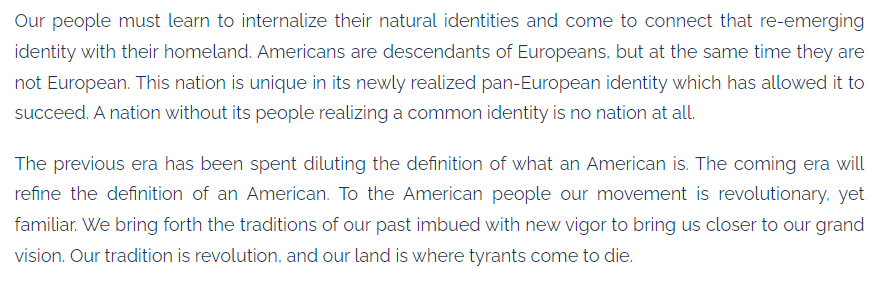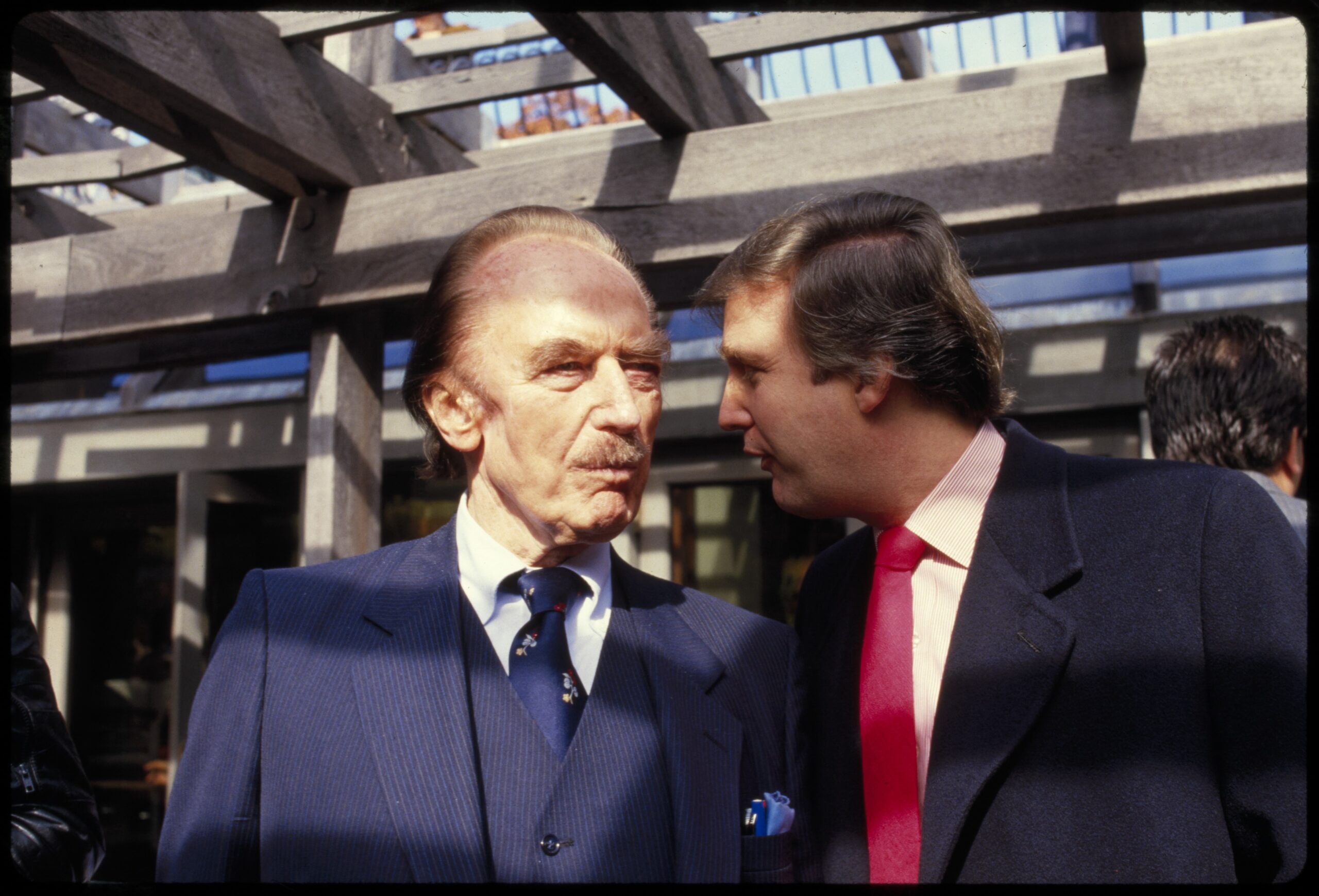Trump and Racism Against Black Americans
Conservative media often stirs emotions by portraying DEI practices as inherently racist and suggesting to Christian audiences that discussions of race in schools are detrimental. However, U.S. history is replete with examples of marginalized Black communities, and in recent times, Republicans have attempted to gerrymander them out of political representation. Furthermore, Trump and his allies have connections with white nationalist groups like the Patriot Front, whose ideology promotes the idea that Americans are descendants of Europeans, thereby undermining the status of Black Americans as true citizens.
From the Patriot Front's manifesto:

National Association of Black Journalists
Trump responded “Well, first of all, I don’t think I’ve ever been asked a question in such a horrible manner. You don’t even say hello? How are you? Are you with ABC? Because I think they’re a fake news network. A terrible network. And, I think it’s disgraceful that I came here in good spirits. I love the black population of this country. I’ve done so much for the black population of this country, including employment, including opportunity zones with Senator Tim Scott of South Carolina… funding Black Colleges.. I think it’s a very rude introduction”
DEI Hire
When asked if he agrees with republicans calling Kamala Harris a DEI hire, Trump asks Rachel Scott to define DEI. He then asks again, after she says “Diversity Equity and Inclusion? That is literally the words”
Afterwards, Scott asks Trump, “Do you think Kamala Harris is only on the ticket because she is a black woman?” where Trump goes on a weird rant about how Kamala has always been Indian, and she became black. Is she Indian or is she Black?
“A lot of journalists in this room are black”, says Trump…. At the National Association of Black Journalists
Black Jobs
On Kamala Harris' race
She was Indian and she "became a 'black' person"

Rep. Byron Donalds (R-FL) said that Black voters support Trump because they also face legal injustice
When Trump made the statement that "Black people like me because they know what it's like to be discriminated against," he appeared to be attempting to connect with the Black community by drawing a parallel between their experiences with discrimination and his own claims of being treated unfairly. This assertion has been met with significant criticism, as many believe it trivializes the systemic racism and historical injustices faced by Black Americans. Critics argue that Trump's experiences as a wealthy white man do not equate to the lived realities of discrimination that Black individuals encounter, thereby undermining the serious nature of the issues at hand.
Trump Sneakers
David Duke, former KKK Leader, said "Of Course" Trump voters are his voters
Trump and Fair Housing
President Trump faced criticism for his remarks on affordable housing and suburban living, particularly after revoking an Obama-era fair housing rule. He stated that residents in suburbs should not be "bothered" by low-income housing, suggesting that their property values would increase and crime would decrease. Critics argue that Trump's comments stoke racial division and appeal to white suburban voters as the election approaches. Former Housing Secretary Julian Castro condemned the move, likening it to a regression in civil rights. Meanwhile, Democratic leaders, including Joe Biden, pledged to reinstate the fair housing rule as part of their campaign. Biden did reinstate the rule, and Project 2025 aims to revoke it again.
Repeal the Affirmatively Furthering Fair Housing (AFFH) regulation
reinstituted under the Biden Administration30 and any other uses of
special-purpose credit authorities to further equity. (p. 509)
"No Vacancies" for blacks in Trump's Apartments in the 1980s
Trump's Bias Accusations for Trump Apartments
In the 1960s, Maxine Brown, a 33-year-old nurse, faced racial discrimination while trying to rent an apartment from the Trump organization in Queens, New York. Despite submitting a promising rental application, her application was ignored by Stanley Leibowitz, the rental agent, after he consulted with Fred C. Trump, Donald Trump's father. This incident highlighted the racial bias prevalent in the housing policies of the Trump family, which would later come under scrutiny by civil rights activists and the Justice Department. Maxine eventually filed a complaint with the New York City Commission on Human Rights, which led to a landmark lawsuit against Trump Management for violating fair housing laws.
As Donald Trump began to take a more prominent role in the family business, the company’s discriminatory practices were meticulously documented by various civil rights groups. In 1973, the Justice Department sued Trump Management for refusing to rent to Black tenants, citing extensive evidence of systemic racism in their properties. The lawsuit marked Donald Trump’s first significant entry into public controversy. He vigorously denied the allegations, framing the government's actions as a misguided attack on his business and counter-suing for defamation, all while insisting on his innocence and refusing to settle quietly, unlike other developers at the time.
Ultimately, the Trumps signed a consent decree to avoid further legal battles, although they maintained that it was not an admission of guilt. Over the following years, they continued to face allegations of violating the decree, and despite some progress in tenant diversity, patterns of discrimination persisted. The case became a defining moment in the Trump legacy, illustrating a complex relationship with race and housing that has resurfaced in contemporary political discourse as Donald Trump seeks to appeal to Black voters while downplaying this history.

Gotfryd, Bernard, photographer, Public domain, via Wikimedia Commons
